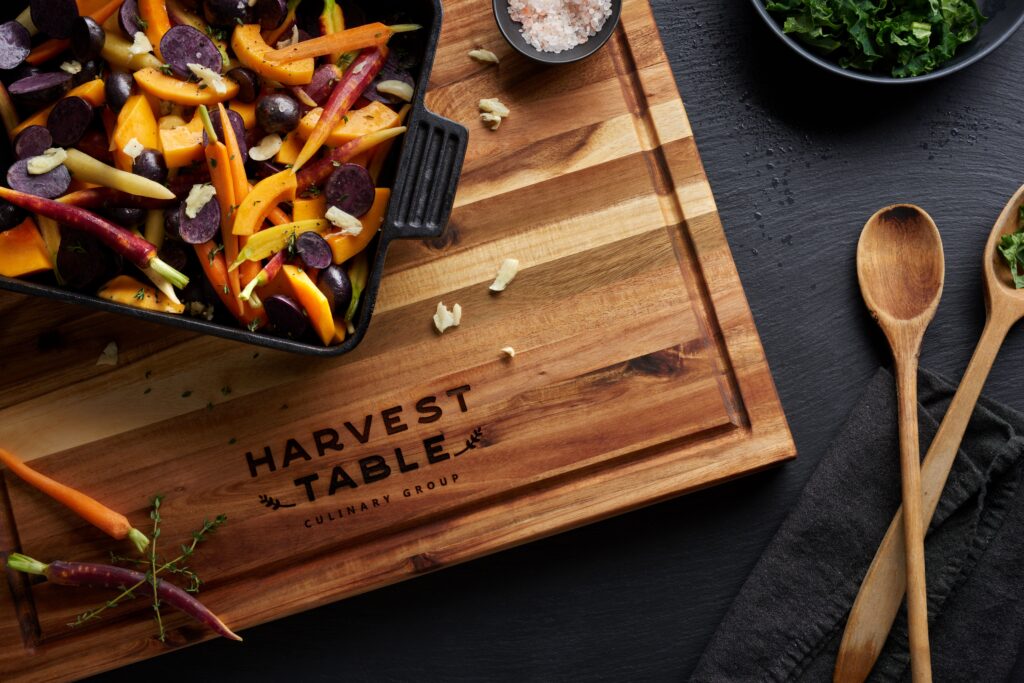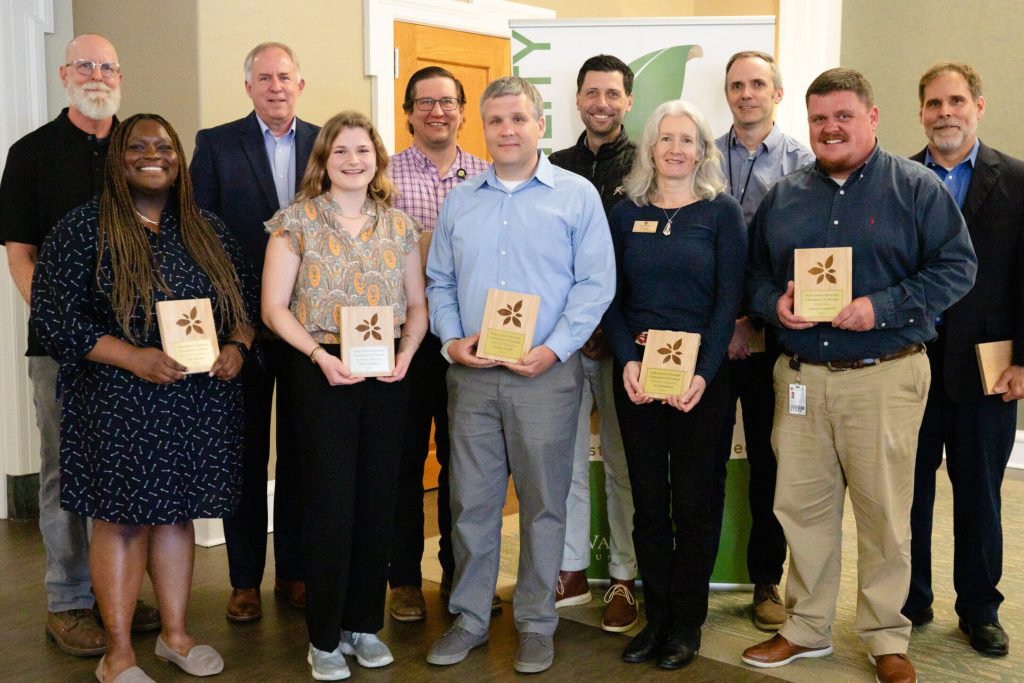Our Unique Approach
Sustainability in dining services at Wake Forest begins with a commitment to addressing global climate change through solutions that are normalized in the everyday experiences of our diners. Healthy and sustainable choices are the default, allowing diners to develop habits and expectations that they will take with them when they leave campus. Importantly, we focus on nutrition and the way diners can fuel their bodies for wellness.
As an institution located in a rich foodshed, we know that “locally grown” does not always mean “more sustainable.” At Wake Forest, we prioritize working with third-party verified sustainable producers and independent smallholder producers to promote a more diversified and resilient agricultural system.
In 2017, Wake Forest worked with food service provider, Aramark, on a sustainability platform that spun off into an independent subsidiary, Harvest Table Culinary Group, that focuses on these shared values. The Office of Sustainability and WFU Harvest Table Culinary Group team members meet monthly to assess progress against shared goals and commitments, which are detailed below.

Eat with Purpose
Our Commitments
Culinary Excellence
If the food we serve isn’t delicious, nutritious, and innovative, we are not meeting the needs of our diners. Wake Forest’s talented Harvest Table Culinary team, from executive chefs to front-line servers, prioritize culinary excellence with each menu item.
Plant-Forward Menus
Planning menus that prioritize plant-based foods over those derived from animals directly contributes to climate mitigation, while introducing many guests to a new and exciting range of tastes.
At Wake Forest, we do this by:
- Implementing a “plants first” structure as the default in dining halls and catering. Plant-based foods are placed at the beginning of the line, followed by complementary complex carbohydrates, with any animal-based foods serving in a supporting role in smaller portions at the end
- Developing creative, plant-forward recipes that convey the diversity of options that make up a balanced, nutritious plate
- Actively sourcing a broad variety of fruit and vegetable types to promote agricultural biodiversity
Sustainable Sourcing
Wake Forest maintains a goal of procuring at least 30% of products, by spend, with verified sustainability claims. Third-party verified products provide assurance that our ingredients are produced in a manner that increases the health of people, animals, soil, and ecosystems.
Strategies we implement like less meat – better meat – allow for added expenses from third-party verified products to be offset by a reduced overall demand for animal-based products.
Food Waste Reduction
Reducing food waste – long before it reaches guests’ plates – is a top global solution to climate change. At Wake Forest, we take preemptive actions to limit the amount of food waste generated.
We do this through:
- Strategic ordering and menu planning to ensure that products will be used before they are no longer viable
- Recipes that use underutilized cuts of meat, “ugly” produce, and edible parts of plants that are typically discarded
- A commitment to culinary excellence and guest satisfaction – delicious food served in right-sized portions is consumed, not discarded
Related Posts
- 12 Champions of Change Honored at 11th Annual Campus Sustainability Awards
 On April 9, the Office of Sustainability hosted the 11th annual Champions of Change Campus Sustainability Awards. Each year […]
On April 9, the Office of Sustainability hosted the 11th annual Champions of Change Campus Sustainability Awards. Each year […] - Wake Forest Alumna and Former Office of Sustainability Intern Becomes AASHE Finalist
 Quin Wolters (’23) returned to her alma mater this fall as Harvest Table Culinary Group’s inaugural Sustainability Coordinator By: Jimena […]
Quin Wolters (’23) returned to her alma mater this fall as Harvest Table Culinary Group’s inaugural Sustainability Coordinator By: Jimena […]
